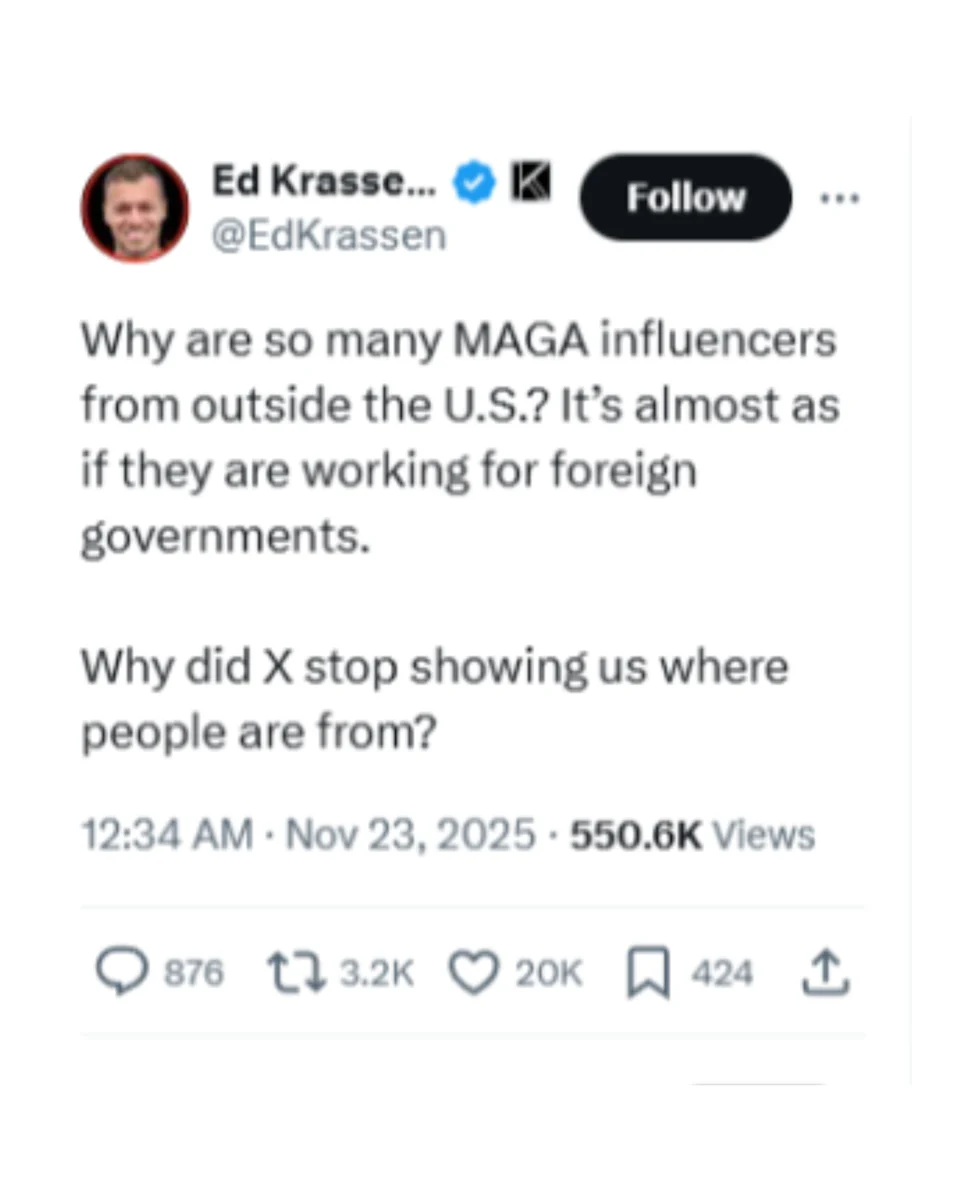A sweeping new moderation shift under Elon Musk’s latest policy on X has triggered a political and cultural shockwave after internal enforcement data revealed that several of the platform’s largest “mega rage-bait” accounts were not authentic influencers at all, but coordinated foreign troll operations posing as American users.

The policy, rolled out quietly this week, targeted accounts driving unusually high volumes of outrage-based engagement—posts engineered to spark anger, mass replies, and rapid reposts. According to people familiar with the enforcement effort, the new system cross-checked identity signals, linguistic markers, and network patterns, exposing a cluster of accounts that had amassed millions of followers while presenting themselves as hyper-partisan U.S. commentators.
MAGANationX, for example, includes a bio line that reads “Patriot Voice for We The People,” but was actually started in Eastern Europe, according to the new feature.

Another account, using an image of President Donald Trump in a tuxedo and using the name “MAGA Scope” with an American flag emoji, was found to have been started in Nigeria in 2024.
Micah Erfan, a left-wing influencer, noted that “like half of their large accounts were foreigners posing as Americans all along.”
What Musk’s team found instead were networks traced back to operators in multiple countries, including troll farms previously linked to influence campaigns targeting Western audiences. Some of the accounts had built major followings by posting incendiary political claims, culture-war hoaxes, and fabricated personal stories that spread widely before being debunked. Several were monetized, earning significant payouts under the platform’s creator program before being suspended.

Experts say the findings highlight how susceptible Western political discourse has become to foreign manipulation, especially when outrage is rewarded by platform algorithms. One digital forensics analyst noted that the troll networks had “successfully mimicked the tone, slang, and emotional style of American rage-posting,” allowing them to blend in seamlessly among authentic creators.
The enforcement sweep has sparked controversy across the platform. Some users applauded the crackdown, saying it confirmed long-held suspicions about coordinated manipulation. Others criticized the move as opaque, calling for greater transparency around how accounts were identified and what evidence was used.
For years, the ‘rage-bait phenomenon’ has shaped online political narratives, often steering conversations toward the most extreme voices. Now, with Musk’s new policy exposing how many of those loudest voices weren’t real people at all, the platform faces pressure to determine what comes next—and how to rebuild trust in a space that foreign actors have learned to exploit with startling ease.

